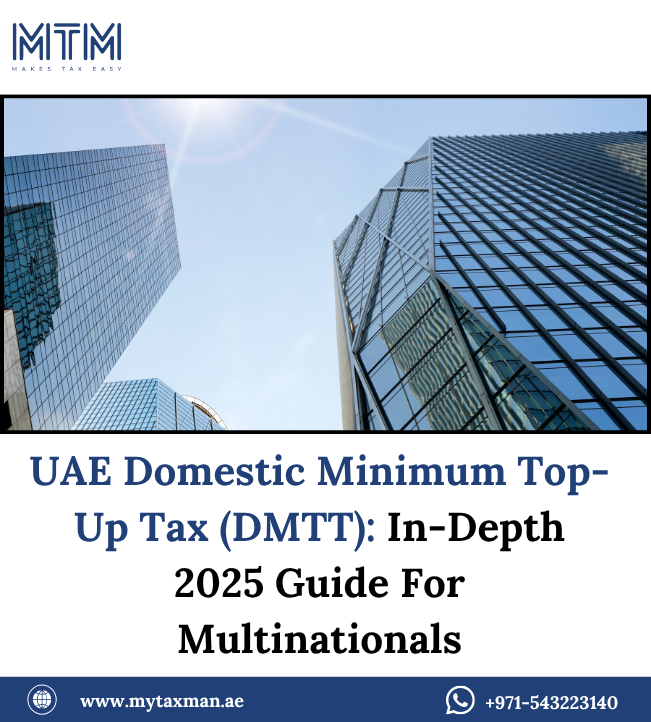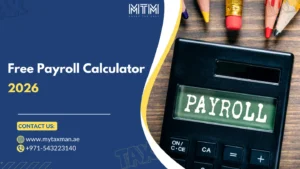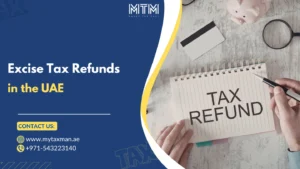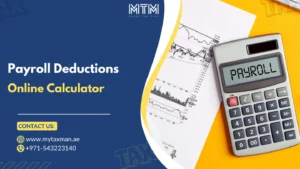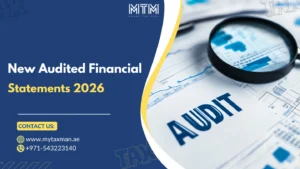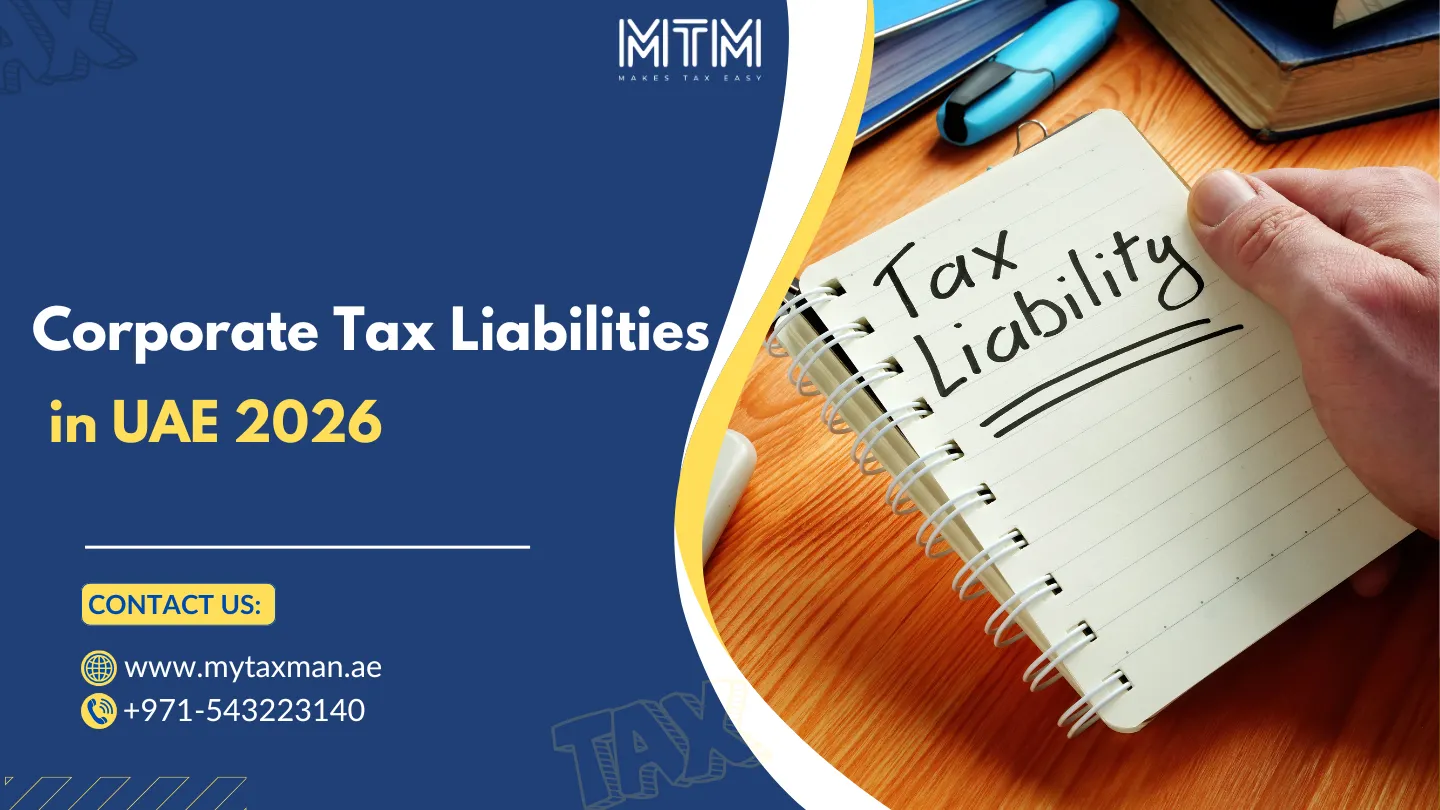The introduction of the Domestic Minimum Top-Up Tax (DMTT) is a major step in the UAE’s journey to align with global tax regulations—especially the OECD’s Pillar Two rules. Effective from financial years starting on or after 1 January 2025, the DMTT aims to ensure that large multinational enterprises (MNEs) operating in the UAE pay at least a 15% minimum effective tax rate, closing the gap on low-taxed profits and curbing profit shifting.
If your business is approaching the EUR 750 million global revenue mark, or if you advise MNEs, understanding Top-Up Tax in the UAE and DMTT compliance has become vital. This comprehensive guide will demystify the law, walk you through compliance steps, and share how expert Tax Consultants in Dubai can help optimize, plan, and future-proof your tax strategy. For immediate expert help, call +971-543223140.
Table of Contents
ToggleWhat is the Domestic Minimum Top-Up Tax (DMTT)?
The DMTT is a tax imposed on low-taxed UAE entities within large multinational groups to ensure that profits earned in the UAE are subject to at least a 15% effective tax rate. This aligns with the OECD/G20’s BEPS 2.0 “Pillar Two” initiative, preventing base erosion and profit shifting by large conglomerates.
Key Features of UAE DMTT:
- Applies to MNEs with globally consolidated revenues of EUR 750 million+ in two of the last four fiscal years.
- Effective January 1, 2025.
- Ensures a minimum 15% effective tax rate (ETR) on UAE-sourced profits.
- DMTT is calculated on profits generated within the UAE, using methodologies aligned with the OECD ‘GloBE’ Model Rules.
Note: Smaller businesses (under the EUR 750m threshold) are NOT affected by the DMTT.

Why Was the DMTT Introduced in the UAE?
The introduction of DMTT is a targeted response to global tax reforms championed by the OECD’s “Pillar Two” rules. This ensures the UAE continues to attract foreign investors while protecting its reputation as a responsible tax jurisdiction.
- The DMTT deters multinational enterprises from shifting profits to exploit lower tax rates.
- It allows the UAE to collect additional tax locally, rather than see those revenues go to other countries under international “top-up” tax provisions.
- The new regime keeps the UAE compliant with international tax standards, helping preserve access to global markets and financial systems.
Who is Impacted by the UAE DMTT?
The DMTT applies ONLY to:
- Multinational Groups (MNEs) with consolidated revenues of at least EUR 750 million in at least two of the previous four years.
- Both UAE-headquartered and foreign-headquartered MNE groups, as long as they have operations in the UAE.
Exclusions and Safe Harbors
- UAE-headquartered groups with no foreign operations are excluded.
- Permanent De-Minimis Exclusion Safe Harbor: If the MNE group’s average Pillar 2 revenue is less than EUR 10 million and average Pillar 2 income is less than EUR 1 million in the UAE, the Top-Up Tax may effectively be zero upon annual election.
How is the DMTT Calculated and Applied?
The calculation of the DMTT is detailed and closely follows the OECD GloBE Model Rules. Here’s a simplified breakdown:
- Identify all constituent entities in the UAE belonging to the MNE group.
- Calculate the effective tax rate (ETR) for each entity under DMTT accounting rules.
- If the ETR is below 15%, calculate the difference (“top-up tax rate”).
- Multiply the difference by the relevant portion of the entity’s “GloBE Income.”
- The resulting figure is the Top-Up Tax due in the UAE.
Example:
- UAE-sourced profits: EUR 100 million
- Effective Tax Paid: EUR 10 million (10%)
- DMTT Liability: (15% – 10%) x 100m = EUR 5 million top-up tax owed to UAE
Additional Provisions
- “Additional Current Top-Up Tax” can apply if prior year assessments change or if certain conditions about covered taxes/income are met.
- Comprehensive Safe Harbors simplify compliance for qualifying groups, potentially reducing the Top-Up Tax to zero under specific tests (De-Minimis, Effective tax rate test, etc.) during a transitional period.
Key Compliance Requirements for DMTT (2025 Onward)
- Registration: Entities must register for DMTT with the FTA (Federal Tax Authority).
- Annual Filing: DMTT returns must be filed, with details calculated based on group results and UAE-specific adjustments.
- Documentation: Entities must maintain detailed records, including transfer pricing documentation, eligible tax credits, and proof of foreign tax payments.
- Calculation Methodology: Use “GloBE Income” and calculate covered taxes using the specified accounting standard adopted by the group, generally IFRS or local GAAP.
- Deadlines: Returns and payments typically due within 9 months following the end of the financial year.
Safe Harbors and Transitional Rules
The UAE has built-in safe harbors and transitional provisions to ease compliance and reduce undue burdens for MNEs:
- Routine Profits Test: If simplified-calculated Pillar Two Income is at or below the allowed substance-based exclusion, then DMTT may not arise.
- De-Minimis Test: If average UAE revenue is below EUR 10 million and income is negative or less than EUR 1 million, top-up tax may be set to zero for that year.
- Effective Tax Rate (ETR) Test: If the UAE effective tax rate, under simplified rules, is at least 15%, no DMTT is due.
- Transitional CbCR Safe Harbor: Until 2028, groups may elect to apply simplified reporting and exemptions in transitional years.
Strategic Implications for Multinational Businesses
Why Compliance and Planning Matter
With the introduction of DMTT, many MNEs must review their global structures, transfer pricing, financial statements, and current UAE operations. Failing to comply comes at a cost:
- Potential penalties for missed registration, late or incorrect filings, or underpayment.
- Risk of double taxation or overseas “top-up” tax assessments if not handled locally.
- Increased audit risk and scrutiny from both UAE and foreign tax authorities.
How Tax Consultants in Dubai Play a Key Role
Navigating DMTT complexity requires deep tax expertise. Tax Consultants in Dubai such as My Taxman:
- Advise on group eligibility and DMTT exposure.
- Help register, file, and document DMTT returns.
- Optimize your UAE and international tax structures to minimize duplicate taxation and ensure compliance with Pillar Two rules.
- Offer strategic guidance around Safe Harbors, exemptions, and transitions.
- Provide training to internal finance teams and C-suite.
Impact of DMTT on UAE’s Business Environment
The UAE’s adoption of DMTT demonstrates its commitment to international tax transparency, keeping its business environment competitive while aligning with global standards. Though DMTT targets only the largest MNEs, it sends a signal to all foreign investors of the country’s stability and reliability as a tax jurisdiction.
Additionally, UAE authorities are exploring future tax incentives such as R&D tax credits and credits for high-value employment to ensure that net investment benefits continue, even under the DMTT regime.
Conclusion
The introduction of the Domestic Minimum Top-Up Tax (DMTT) in the UAE signals a new era for multinational tax compliance. While the new law targets only MNEs with revenues above EUR 750 million, it demands early assessment, precise record-keeping, strategic adjustments, and ongoing compliance. Stay ahead of global tax developments: work with trusted Tax Consultants in Dubai to safeguard compliance, seize planning opportunities, and maintain your edge.
For tailored advice or a DMTT readiness assessment, get in touch with My Taxman at +971-543223140 today.
Frequently Asked Questions (FAQs)
Q1. What is the Domestic Minimum Top-Up Tax (DMTT)?
The DMTT is a tax introduced in the UAE to ensure that large multinational enterprises operating in the country pay a minimum effective tax rate of 15% on UAE-sourced profits, as required by OECD Pillar Two global tax reforms.
Q2. Who is affected by the DMTT in the UAE?
The DMTT applies only to multinational groups with consolidated global revenues of at least EUR 750 million in at least two of the previous four years, covering both UAE-headquartered and foreign-headquartered groups with UAE operations.
Q3. What is the effective date of the UAE DMTT?
The DMTT takes effect for fiscal years starting on or after January 1, 2025.
Q4. How is the DMTT calculated?
It is calculated based on the difference between a 15% minimum ETR and the entity’s actual effective tax rate on its UAE profits, applied to those profits according to OECD-aligned methodologies.
Q5. What are the main compliance steps for MNEs under the DMTT?
Affected groups need to register, calculate, and file annual DMTT returns with the FTA, maintain detailed supporting documentation, and apply relevant safe harbor options as eligible.
Q6. How can Tax Consultants in Dubai help?
Tax consultants support with DMTT readiness assessments, compliance filings, documentation, tax efficiency planning, and navigating complex OECD rules and exemptions.

